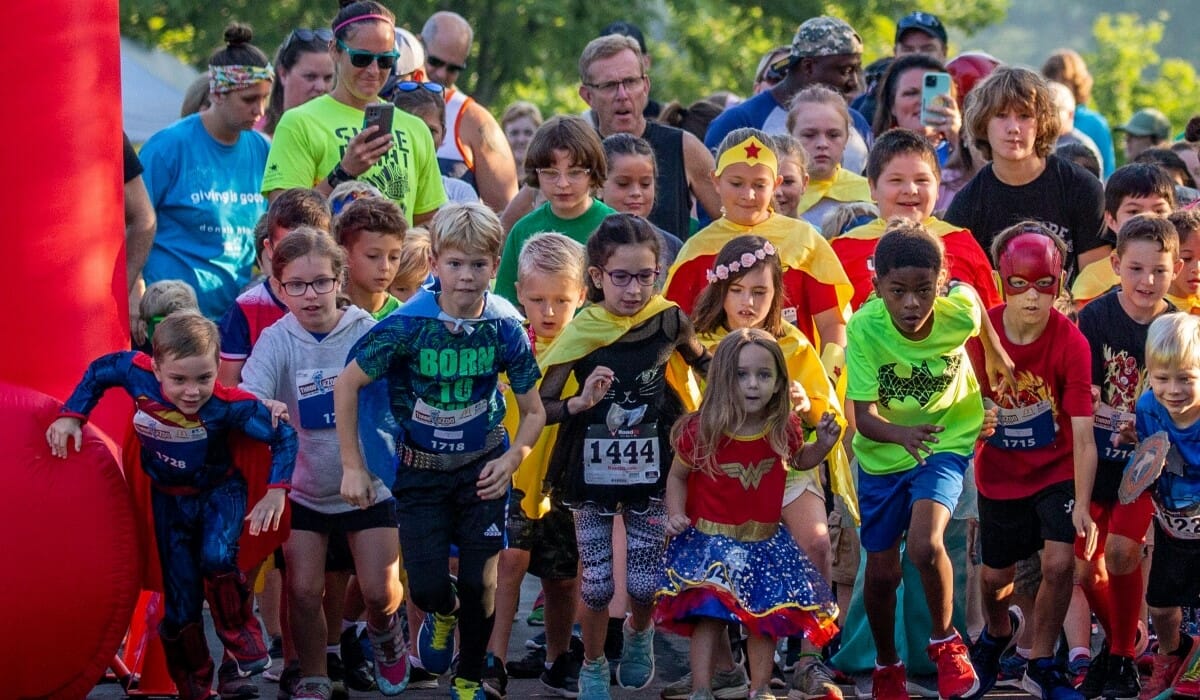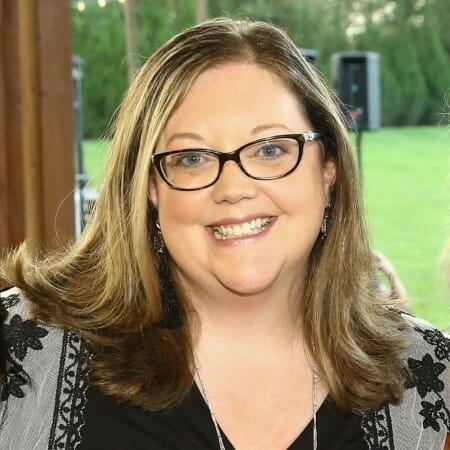Kentucky Volunteer Advocates for Foster Children Both in Court and in Life

Meet Daily Point of Light Award honoree Brittney Thomas. Read her story and nominate an outstanding volunteer or family as a Daily Point of Light.
Content Warning: Points of Light is proud to share the following uplifting and inspiring story. However, we acknowledge that a small portion below may be difficult for some readers. We encourage you to please care for your own wellbeing above all.
On December 1, 1997, a student opened fire at Heath High School in Kentucky, killing three of his fellow students and injuring five others. Brittney Thomas, then 15, survived. However, one of her close friends was shot and killed next to her. As she testified against the shooter in court, Brittney was forced to relive the trauma she endured that day. But without a victim’s advocate appointed to her, as she wasn’t a physically injured survivor, she felt that her voice wasn’t being heard and that there was no one to support her through such an intimidating process.
Hoping to ensure that no other child has to experience what she went through, Brittney, now 40, has volunteered for more than eight years as a court-appointed special advocate with CASA of Lexington. She has advocated for dozens of children in the foster system by getting to know them and the situations they are in, and by being a voice for them in court so that the judge makes decisions based on the child’s best interests. On top of that, she has thrown first birthday parties for teenagers, helped youth further their education and assured many children are in safe and permanent homes, changing the trajectory of so many children’s lives for the better.
Describe your volunteer role with CASA.
CASA stands for court-appointed special advocate. The workers are assigned to some of the most complicated cases of abuse and neglect in children in our foster care system. So as a CASA worker, we will stay with that child from the moment we are appointed until the moment that permanency is achieved, meaning that they are able to find a forever home by being adopted or in some cases they actually return home if their parents are able to do their case plans. A lot of times, children in foster care may have multiple social workers, but a CASA child will only have one CASA worker, so we are that stable and constant adult in the child’s life.

What inspires you to volunteer?
I think some of it stems from the fact that I didn’t have an advocate when I was in court and I would never want a child to have to go through the court system without having somebody by their side, a safe person for that child. I think the other part of it is that I’m not married, I don’t have my own kids. So when I take on a CASA case to advocate for kids, I treat them and advocate for them as if they were my own kids. Data shows that if just one person can intervene in the life of a child, that can completely change the trajectory of their life and where they end up. And so, my hope is that through some of my work, I can just reach one child and help them have a brighter future that may not have been possible otherwise.
What kinds of backgrounds or situations are these children coming from?
It’s a variety of different cases. I’ve had many cases of physical abuse. Some kids I’ve worked with have been sexually abused. I’ve had cases where children have been in a home where one or both parents were addicted to drugs and their drug use led to severe neglect. I’ve worked with children as young as a day old all the way up to 21.
How do you build a personal relationship with them?
As a CASA worker, we are required to see the kids at least once a month and so I try really hard to see my kids even more frequently than that. I start off with relationship building. We talk about who they are as a person, what are the things they enjoy. Many times, it’s establishing that trust by helping find something that they need in order to feel safe. For example, maybe when they left their home, they didn’t get their stuffed animal or maybe they’ve been separated from their siblings and they don’t know where they are. So, I try to connect the kids with their siblings if possible and locate their possessions and bring them to wherever they currently are.
What are some of your favorite moments you’ve had with the children?
I think some of the favorite things I’ve done are to help kids reunify with their siblings. We’ve also helped a few kids move into their own apartments and we’ve thrown birthday parties. The slogan for CASA is “Every kid needs a hero, but foster kids need a superhero.” So we have this 5K run where everybody, including the kids in the program, dresses up like a superhero. I’ve also gone to several of their adoption hearings and parties afterwards.
What have you learned through your experiences as a volunteer?
So many things, but one thing I learned is that mocha frappuccinos make a good impression on strong-willed teenagers! You want to break the ice with an angry teenager? Starbucks will often do the trick.
What do you want people to learn from your story?
I think sometimes people feel that with the busyness of their own lives that it would take too much time or be too hard to volunteer, especially with a program like CASA. But I feel that anybody can do it. These kids desperately need somebody to stand in the gap for them. It doesn’t matter what your limitations are. There is always a child who needs you and who could benefit from what you have to offer them.
Why do you think it’s important for others to get involved?
If everybody would give a little bit of themselves, they would also learn that oftentimes, it helps you with whatever you’re going through. It’s definitely helped me in some really rough times. Suffering is the common denominator we all have. It’s what makes us human. But we don’t have to do things alone. When people step up to the plate to serve others, the whole world benefits from that experience.
Do you want to make a difference in your community like Brittney? Find local volunteer opportunities.
